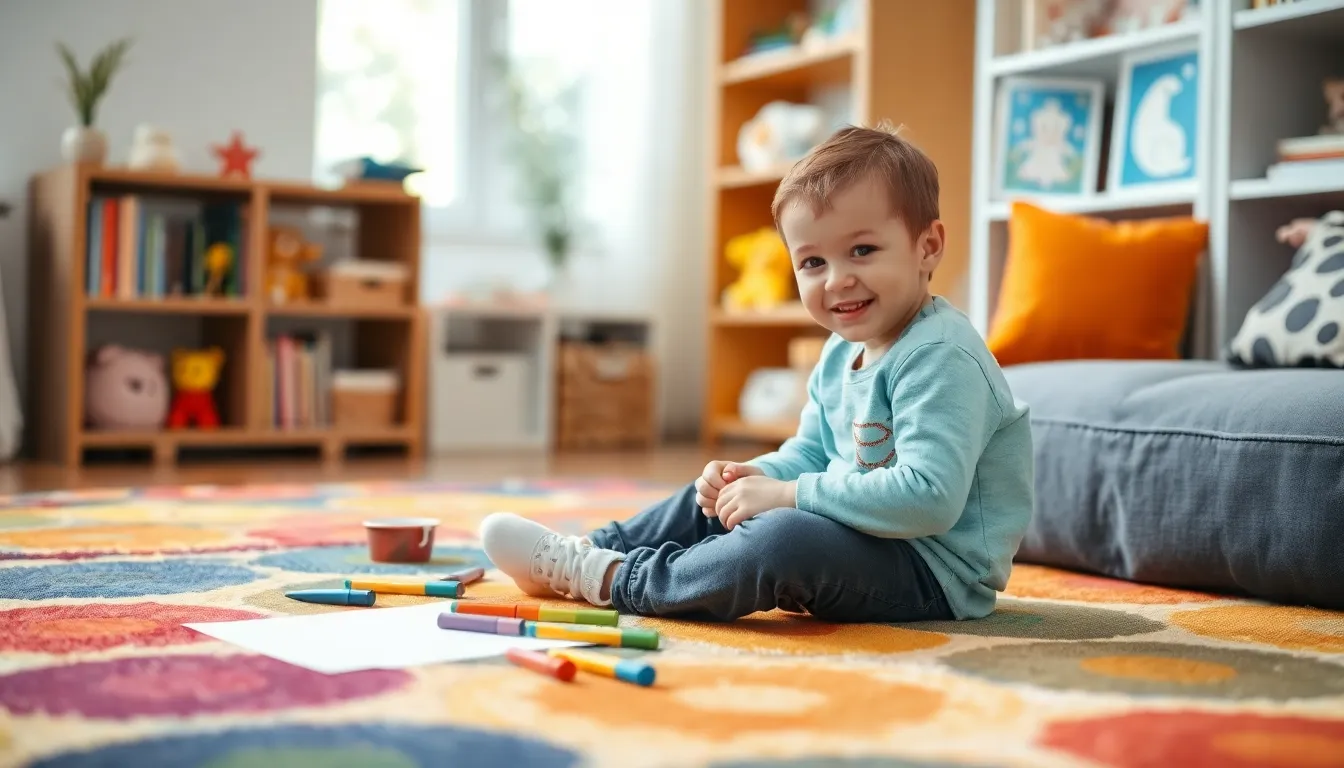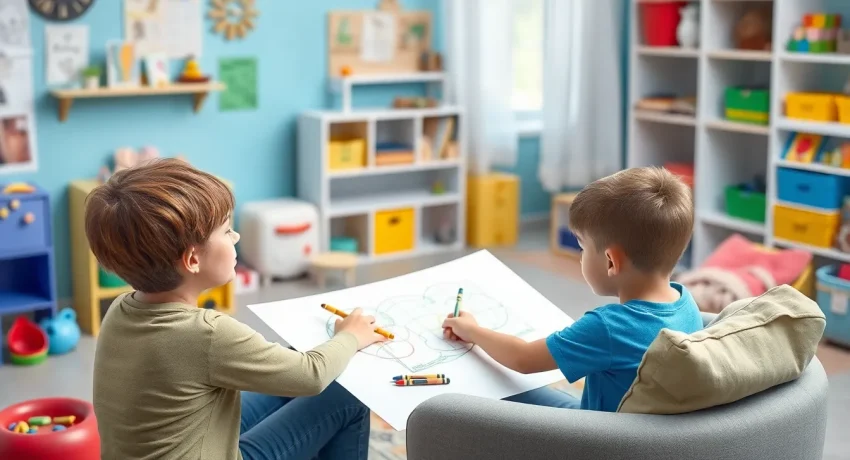Navigating the world of childhood can feel like a rollercoaster ride—thrilling, confusing, and sometimes a bit scary. Kids face pressures that can leave them feeling overwhelmed, and that’s where child counseling swoops in like a superhero. It’s not just about talking; it’s about empowering kids to tackle their emotions head-on while offering them tools to navigate life’s ups and downs.
Table of Contents
ToggleOverview of Child Counseling
Child counseling focuses on the mental and emotional well-being of children. It provides support for kids dealing with anxiety, depression, and behavioral issues. Trained professionals create a safe space where children can express their feelings and thoughts. Therapy sessions often incorporate play, art, and other engaging activities.
Cognitive-behavioral therapy helps children recognize and modify negative thought patterns. This approach can significantly improve coping strategies and resilience. Family involvement enhances understanding, promoting healthier communication within the household. Counselors may also work with parents to address specific challenges they face in raising their children.
The age of the child influences the counseling techniques used. Younger children benefit from play therapy, while older children might respond better to talk therapy. Effective counseling requires building trust, as children often share more in a familiar setting.
Counseling can address specific issues, such as bullying, grief, or developmental disorders. It allows children to develop problem-solving skills and emotional regulation. Research indicates that early intervention through counseling improves long-term outcomes.
Overall, child counseling equips children with valuable tools to navigate life’s challenges, fostering emotional growth and resilience.
Importance of Child Counseling

Child counseling plays a critical role in fostering a stable emotional environment for young individuals. It helps children navigate their emotional landscapes, enabling them to grow into well-adjusted individuals.
Emotional Development
Counseling significantly enhances emotional development in children. Therapists utilize various techniques to help kids identify and express their feelings. Engaging activities like art and play therapy allow them to communicate in ways they find comfortable. By providing a safe space, counselors enable children to explore their emotions without fear. Kids learn to recognize emotions and develop a vocabulary for their feelings. As a result, they cultivate skills in empathy and emotional regulation, contributing to healthier relationships.
Behavioral Issues
Addressing behavioral issues through counseling can lead to positive, lasting changes. Experts identify underlying causes of disruptive behaviors, allowing for targeted interventions. Counselors often apply strategies to help children replace negative behaviors with constructive ones. Techniques like role-playing help kids understand the impacts of their actions. Implementing consistency in this process is crucial for effectiveness. Families actively participating in counseling sessions can improve the outcomes. Parents receive guidance on reinforcing positive behaviors at home, promoting a cohesive approach to behavior management.
Approaches to Child Counseling
Child counseling incorporates various therapeutic approaches tailored to address unique needs. These methods foster emotional growth and resilience.
Play Therapy
Play therapy engages children in creative activities, allowing them to express feelings and experiences non-verbally. Therapists use toys, games, and creative arts to facilitate this communication. Children often feel more comfortable in play settings, enabling them to explore challenging emotions. This approach addresses issues like anxiety, trauma, and social difficulties. Research highlights that play therapy helps in building coping skills and enhances emotional regulation. Trained professionals observe the children’s interactions with toys to identify underlying thoughts and feelings.
Cognitive Behavioral Therapy
Cognitive behavioral therapy (CBT) focuses on altering negative thought patterns that contribute to emotional distress. It encourages children to identify distorted thoughts and replace them with healthier perspectives. Through structured sessions, therapists guide children in recognizing triggers and developing coping strategies. CBT addresses various issues, including anxiety and depression, offering practical tools for everyday challenges. Studies show that early intervention with CBT can lead to significant long-term benefits, improving overall emotional well-being. Skill-building exercises strengthen resilience, empowering children to face future challenges with confidence.
Challenges in Child Counseling
Child counseling faces several significant challenges that can impact its effectiveness. Understanding these obstacles helps in creating better frameworks for support.
Parental Involvement
Parental involvement greatly influences the success of child counseling. Engaging parents in the therapeutic process establishes an environment of trust and collaboration. Counselors encourage families to participate actively, as it nurtures healthy communication and enhances child outcomes. Parents who attend sessions learn to reinforce positive behaviors at home, promoting consistency in their child’s development. Encouragement for parents to express their concerns and feelings can greatly improve the counseling experience. When parents support their children’s emotional journey, children feel more secure in their exploration of feelings.
Stigma Around Mental Health
Stigma surrounding mental health remains a crucial barrier in child counseling. Many families hesitate to seek help due to fear of judgment or societal perceptions. This stigma can prevent children from receiving timely interventions that address emotional and behavioral issues. Educating communities about mental health helps reduce misconceptions and promotes understanding. Counselors often work to dismantle this stigma by openly discussing mental health in schools and community programs. Positive representation of mental health issues fosters acceptance and encourages families to pursue support without shame. By normalizing discussions around emotional well-being, the path to treatment becomes clearer for those in need.
Child counseling serves as a vital resource for nurturing emotional health in children. By providing a safe space for self-expression and growth, it equips young individuals with essential skills to navigate life’s challenges. The collaborative approach involving families enhances the effectiveness of counseling, fostering stronger relationships and communication.
As awareness of mental health continues to grow, reducing stigma becomes crucial. Encouraging open discussions about emotional well-being paves the way for more families to seek support. Investing in child counseling not only benefits children today but also lays the foundation for healthier, more resilient adults in the future.




